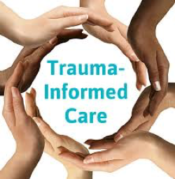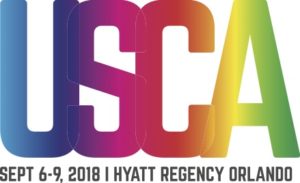Please mark your calendar for the 2018 United States Conference on AIDS to be held September 6-9 in Orlando, Florida. NMAC initially moved USCA to Orlando to support a city that was devastated by the massacre at Pulse Nightclub. It was a tragic and unthinkable loss of life and, like the HIV epidemic, it left behind a community that was both broken and committed to rebuilding. Two years later, what are the lessons the HIV community can learn from this adversity? How do we honor this unspeakable loss while the rest of the world moves on to other issues?
 This year USCA and NMAC will focus on Trauma Informed Care (TIC) as a roadmap to healing. Trauma informed care is an organizational structure and treatment framework that involves understanding, recognizing and responding to the effects of all types of trauma. TIC also emphasizes physical, psychological, and emotional safety for both consumers and providers and helps survivors rebuild a sense of control and empowerment. The trauma of violence, HIV, racism, homophobia, sexism, transphobia, and xenophobia cannot be underestimated in how they inform people’s willingness to get healthcare. As we all know, retention in healthcare is essential for people living with HIV. It is also necessary for people on PrEP. NMAC believes this is one of the primary reasons why people of color have such different health outcomes when compared to their white counterparts.
This year USCA and NMAC will focus on Trauma Informed Care (TIC) as a roadmap to healing. Trauma informed care is an organizational structure and treatment framework that involves understanding, recognizing and responding to the effects of all types of trauma. TIC also emphasizes physical, psychological, and emotional safety for both consumers and providers and helps survivors rebuild a sense of control and empowerment. The trauma of violence, HIV, racism, homophobia, sexism, transphobia, and xenophobia cannot be underestimated in how they inform people’s willingness to get healthcare. As we all know, retention in healthcare is essential for people living with HIV. It is also necessary for people on PrEP. NMAC believes this is one of the primary reasons why people of color have such different health outcomes when compared to their white counterparts.
 While overall last year’s USCA was amazing (please see final report), there were moments where NMAC was called out to be more responsive to communities that are over-represented by HIV, yet under-represented at the conference. As a result, NMAC is putting together Constituent Advisory Panels (CAP) to help inform USCA, the Summit, and other NMAC programs. A full announcement of this program will happen in February.
While overall last year’s USCA was amazing (please see final report), there were moments where NMAC was called out to be more responsive to communities that are over-represented by HIV, yet under-represented at the conference. As a result, NMAC is putting together Constituent Advisory Panels (CAP) to help inform USCA, the Summit, and other NMAC programs. A full announcement of this program will happen in February.
This year we are also adding Webinars to improve your USCA experience. NMAC will host three webinars on the following topics:
- Abstract Submission (April)
- Scholarship Submission (June)
- New Attendee Orientation (Aug)
These webinars along with an enhanced web site will guide participants through the process of submitting abstracts or scholarships. It will also orient new attendees because USCA can be overwhelming to people who have not previously participated.
This year USCA will have three rounds of Scholarships:
- Youth Scholars (April)
- People Over 50 Living with HIV (May)
- General Scholarships (July)
In our effort to be more transparent, look for future announcements about these initiatives. Members of the CAP will be asked to review applications.
 Finally, USCA is bringing back the Executive Director’s Leadership Institute. It will be all day on September 5 in Orlando. This year’s Institute will be limited to 75 people. More details will be released in March. It will be an intensive learning experience on trauma informed care and how it can shape HIV services.
Finally, USCA is bringing back the Executive Director’s Leadership Institute. It will be all day on September 5 in Orlando. This year’s Institute will be limited to 75 people. More details will be released in March. It will be an intensive learning experience on trauma informed care and how it can shape HIV services.
Welcome back, it’s going to be a busy year.
Yours in the Struggle,
Paul Kawata
Executive Director
(202) 277-2777


